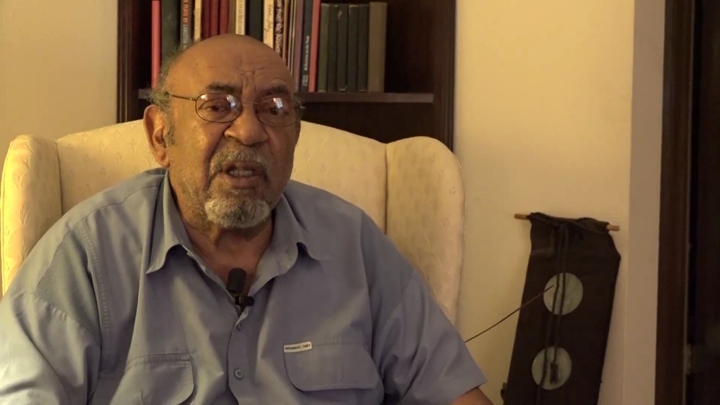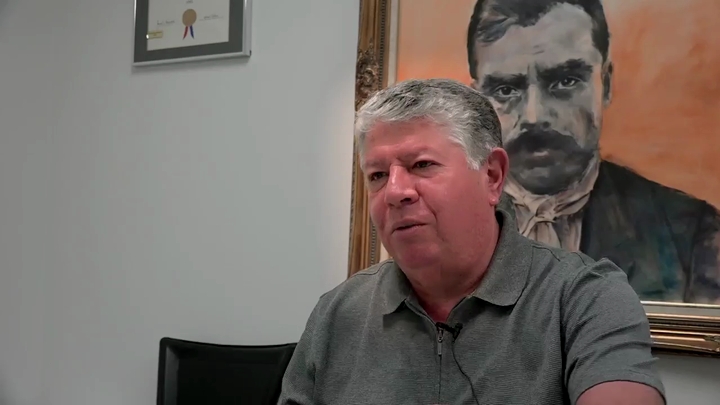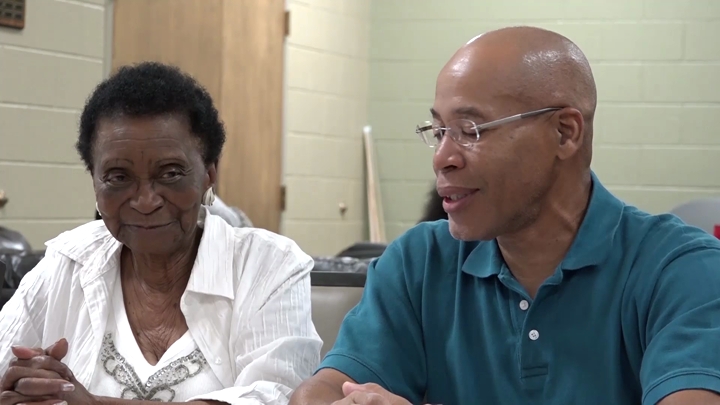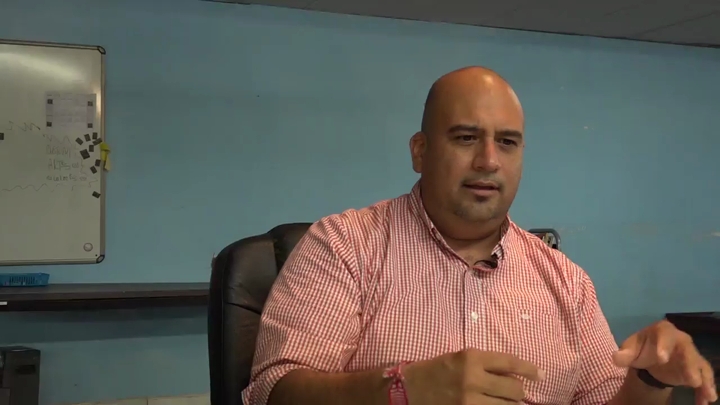Watkins / Graduate School Career
sign up or sign in to add/edit transcript
Watkins: OK, let me tell you after that, I went to Galveston. UT-Galveston. Actually, I went down there, and I was applying for medical school, but I went on and worked for a research lab the rest of that year in the endocrinology set-up. That was a real—the department head was from Germany, Dr. Fasika. Dr. Fasika was very open and everything and one Sunday he was taking all of us to a movie and when we got to the movie theater then they denied me admission to the movie theater. Interviewer: What year was this? Watkins: This was 1961, 1962. Interviewer: So, at UT you were there for no more than a year then? Watkins: At Baylor. It was a half a year and then the other half a year I went down to UT. Interviewer: And then after—Well, better yet what happened with the group? Watkins: So, we didn’t go to the movie so Dr. Fasika took us all to dinner somewhere. Down on the seawall somewhere, but I was not allowed to go in with the group to the movie in Galveston. It was just like trying to keep us like a group working together. So, he had invited everybody that Sunday to a movie and I was invited as well, but I was not admitted. So, then we left there, and we went somewhere on the seawall where I could go with the group to eat on the seawall. I left there. My grandmother lived in St. Louis and I stayed there. I didn’t get admitted to the medical school, so I went to live with my grandmother in St. Louis and I was a substitute teacher for the rest of that year in St. Louis. Then I left there, and I went to Kansas State for pre-vet. I started—well, what happened while I was at UT in Galveston, on my resume I had put down that I had worked with the animal colony at Baylor and so they had me to work with the rabbits and, you know, the animal colony there. They were doing enzyme studies. So, I was with one of the professor’s that was with the group. Also, we would work with Clairol. We would go up to the OBGYN when a baby was born, we got the placenta tissues and then we did fractions and extracts down to the estrogen levels. So, we were doing different studies for Clairol for the face creams and, you know, what they were doing. We were just doing the extractions at certain levels. They wanted the estrogen levels. So, we got the placentas. I was working with the animals down there and one of the guys said, “You have a knack for working with animals, have you ever thought about veterinary school?” And I said, “You know, I never had. I was trying to get into medical school,” I said, “but that sounds like I good way to go.” So, I started looking into veterinary school and that was prior to going to Missouri. While I was in Missouri, I went on and worked as a substitute teacher. In the meantime, I got accepted to do pre-vet work at Kansas State in Manhattan, Kansas. After that year, I left and went to Manhattan, Kansas. Well, it was during the summer to do those pre-vet courses and then I came back to St. Louis after that summer. Well, I had a real bad experience at Kansas State. I was in a poultry science class and I was the only girl and the only black in the class. At the time, they were beginning to accept girls in the veterinary school. They didn’t have any black, even males in the—well they had black males, but it was like two to a class or whatever. During the summer, I was the only black over in the vet school and female. So, I was taking this class in poultry science and we had to wear the black aprons. So, the guys would take off their shirts and everything and put the aprons on because we had the turkeys or the chickens on the rack and you would hit the jugular and they’d bleed out. It would splatter and what have you, so I would always wear double t-shirts and a black apron. One of the white boys he said, “You can go ahead and show those jugs” and I had the knife in my hand to hit the jugular, so I just held it up. He screamed that I was going to attack him, that I was going to stab him and all of that and I was just holding the knife up. I told him “These are a set of jugs you will never see.” I was still holding the knife and the instructor came in and he told the instructor that I had threatened him. I had to go to the dean’s office and the dean said, “Do you want to go to Kansas State to vet school?” I said, “I want to go to vet school.” So, he said, “You can’t get along with these white boys.” I said, “They’re not really gentlemen and they don’t have any respect for me.” I said, “I’m not going to put up with their foolishness.” So, he called the dean down at Tuskegee in Alabama. They were classmates from Kansas State. He called the dean down there and he said “I’ve got this young lady down here and I think she wants to be a veterinarian but she’s having a problem with the little white boys.” So, the dean down at Tuskegee, I got on the phone with him, and he said, “Did you apply to Tuskegee?” I said, “No sir, I hadn’t.” He said, “Well would you like to come to Tuskegee?” I said, “Yes sir, I would.” He said “Well, if Dean Relsback would approve of you coming to Tuskegee, you know, he would write a letter of recommendation to say that you would qualify for vet school, then we’ll accept you.” So, Dean Relsback got on the phone and he told him that he would send the letter, and, in the fall, I went to Tuskegee. That was in 1964. Interviewer: So, they were saying that you were the one with the problem? That you couldn’t get along with anyone else, that you were the one with the problem? Watkins: At Kansas State. The dean actually saw what the problem was, but the young man tried to make it look like I started it. The dean had him to sit in there and he couldn’t deny it. He did apologize. He said, “Well I thought you were going to strike me with that knife.” I said “No, I was getting ready to hit the jugular on the turkey that was coming across the rack and you started acting a fool. That’s why I held it up, but I wasn’t going to hit you.” I told him I’m not violent because I had been through the sit-ins in Houston with nonviolence. So, it was kind of a mindset of nonviolence. Interviewer: Which, by the way, I do want to get to. That’s why I was like, should we go through your college career? So, then you go to Tuskegee in 1964 and how long were you there for? Watkins: Four years. I graduated in 1968.
| Interview | Interview with Halcyon O. Watkins |
| Subjects | Work › Occupations |
| Discrimination or Segregation › Discrimination or Segregation of Public Accommodations | |
| Discrimination or Segregation › Discrimination or Segregation at School | |
| Education › Higher Education | |
| Education › Education and Gender | |
| Education › Education and Integration | |
| Education › Teachers and Administrators | |
| Gender and Sexuality | |
| Discrimination or Segregation › Discrimination or Segregation of Public Accommodations › Movie Theaters | |
| Tags | University of Texas at Galveston |
| Kansas State University | |
| Tuskegee University | |
| Sexual Harassment | |
| sign up or sign in to add/edit tags | |
| Interview date | 2015-07-23 |
| Interview source | CRBB Summer 2015 |
| Interviewees | Watkins, Halcyon O. |
| Duration | 00:08:56 |
| Citation | "Graduate School Career," from Halcyon O. Watkins oral history interview with , July 23, 2015, Civil Rights in Black and Brown Interview Database, https://crbb.tcu.edu/clips/750/graduate-school-career, accessed April 18, 2024 |






